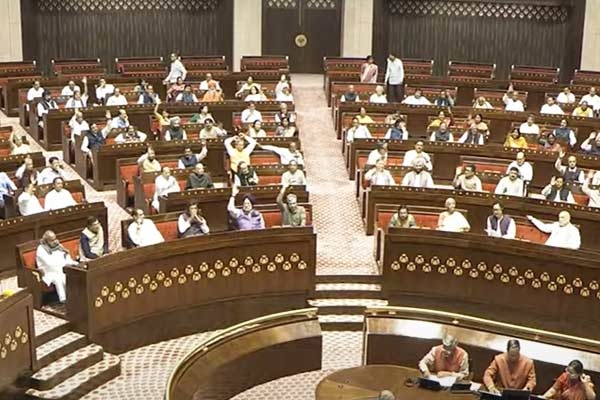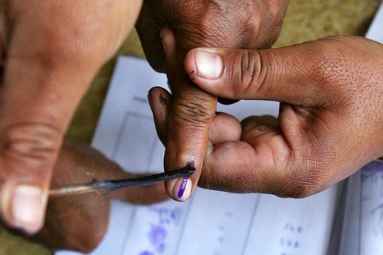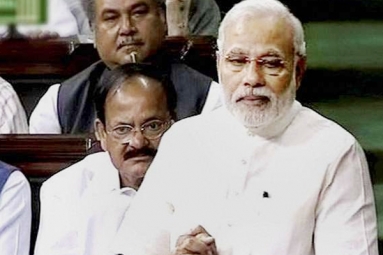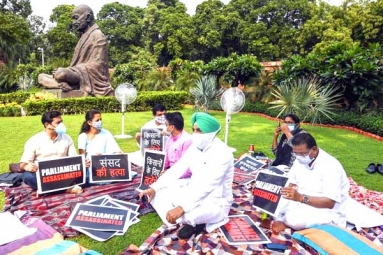
(Image source from: x.com/sansad_tv)
On Friday, the Rajya Sabha approved the Waqf (Amendment) Bill, 2025, following an extensive debate lasting over 12 hours regarding the proposed legislation. The voting concluded with 128 members supporting the bill and 95 opposing it. The next step is for President Droupadi Murmu to give her approval for the bill to become an official Act. This approval follows the Lok Sabha's endorsement of the bill a day earlier, where it was passed after a similarly lengthy debate, gaining the approval of 288 MPs, while 232 voted against it. The discussions in the Rajya Sabha were marked by intense exchanges between leaders from the NDA and the INDIA bloc. During the debate, Kiren Rijiju, the Minister for Minority Affairs, noted that the bill was revised with several amendments reflecting feedback from various stakeholders.
The minister emphasized the secular nature of the Waqf Board, stating that it is a statutory entity. He explained that the inclusion of non-Muslims on the board was justified, although their representation is limited to four out of a total of 22 members. Furthermore, Rijiju claimed that it was the Congress and other opposition parties, rather than the BJP, who were instilling fear in the Muslim community concerning the Waqf Bill. He accused the opposition of marginalizing Muslims, asserting that under 60 years of Congress rule, little was done to improve the status of the Muslim community, which continues to face poverty. "Who is responsible for the struggles faced by Muslims? You are," he remarked, adding that the current government led by Modi is working to lift them up.
The Waqf (Amendment) Bill aims to enhance the functionality of Waqf tribunals, establish a formal selection process, and set a defined tenure to facilitate effective dispute resolution. The legislation reduces the mandatory contribution of Waqf institutions to Waqf boards from 7% to 5%, while also mandating audits by state-approved auditors for Waqf institutions that generate over Rs 1 lakh. Additionally, a centralized portal is set to streamline the management of Waqf properties, thereby increasing both efficiency and transparency. The bill also allows practicing Muslims, who have been engaged in their faith for a minimum of five years, to dedicate their property to Waqf, reverting to regulations prior to 2013. It includes provisions to ensure women receive their inheritance prior to any Waqf declaration, with specific measures aimed at supporting widows, divorced women, and orphans.
Moreover, the bill calls for an official of no less than the rank of collector to investigate government properties claimed as Waqf. It also includes a proposal for non-Muslim representation on both central and state Waqf boards to foster inclusiveness.















